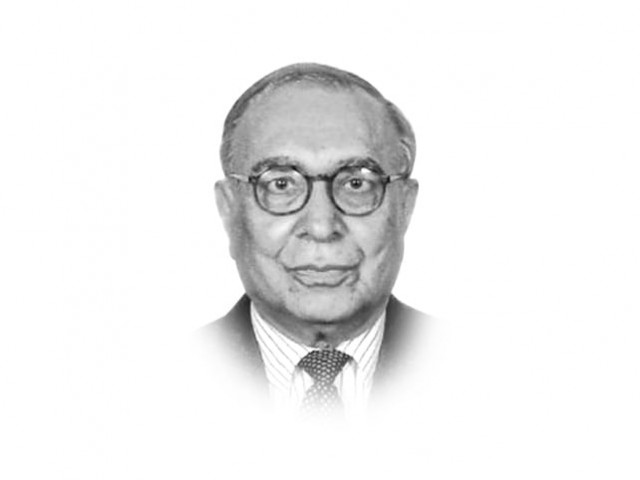Are BRICS building a hollow pillar?
BRICS may well attain a strategic salience and the pillar erected by it may not be hollow.

India is, in fact, securely anchored in the American plan to limit China’s influence and power projection in the Pacific and South Asian region. Washington is, however, uncertain about India’s role on the global economic scene, where India and China may continue to work together even as they are considered rivals in the Asian context. The West always has more reasons to worry about the broader international canvas when such unlikely groupings of economically vibrant nations as BRICS threaten its monopolistic right to define the world order exclusively.
If the post-1989 world order was a different kind of global Empire, the triumph of which was briefly celebrated by Francis Fukuyama as the end of history, the subsequent history that obviously had not ended is a record of blatant use of force, frequent threat of use of force, overt and covert actions to bring about regime changes and new doctrines of power projection, such as the promised pre-eminence of the US Pacific Command. This is only the militaristic aspect; the Empire has also been active diplomatically to promote Nato’s global influence and allied structures of international relations; the most recent examples of the latter being the initiative to link Asian states on China’s vast rim, into economic collaboration relatively free of dependence on Beijing, and the proposal of the New Silk Route in Central and South Asia. Just as the ‘Empire’ has developed strategies to prevent dispersal of political and economic power, many other nations, notably Russia and China, have launched moves to accelerate the shift to a multipolar world.
The raison d’être of BRICS has been strengthened by the 2007-08 financial crisis and the subsequent US effort to lead an essentially western effort to overcome it. BRICS nations would probably be more concerned by the West’s unilateralist actions than many other states because they have greater leverage. An illustration is the threat posed by masses of money released by western bail-out and rehabilitation plans to the trading advantage of the emerging economies. There is now a low-simmering discussion about reducing dependence on the dollar. BRICS is talking about local currency payments and even a new development bank. Consider the facts: BRICS nations occupy 26 per cent of the world’s land mass; over 40 per cent of its population; 40 per cent of global GDP, and an intra-BRICS trade of $250 billion. Optimists in the West say that all this need not translate into strategic power but deep down they fear that it may.
Consider the following from the declaration of the fourth BRICS summit and ponder if the dynamic to seek strategic clout has not already been established: “We believe that it is critical for advanced economies to adopt responsible macroeconomic and financial policies, avoid creating excessive global liquidity and undertake structural reforms to lift growth that create jobs. We draw attention to the risks of large and volatile cross-border capital flows being faced by the emerging economies”. The declaration also confirmed that the summit “considered the possibility of setting up a new development bank for mobilising resources for infrastructure and sustainable development projects in BRICS and other emerging economies and developing countries, to supplement the existing efforts of multilateral and regional financial institutions for global growth and development.”
Since Pervez Musharraf’s rise to power, Pakistan’s diplomacy has shrunk in outlook and performance; the political government that followed him has been prevented by its very genesis, from thinking boldly, especially where Washington is involved. India, on the other hand, established special strategic relations with the US and, kept its participation in other important groupings at a robust level. BRICS may well attain a strategic salience and the pillar erected by it may not be hollow.
Published in The Express Tribune, April 9th, 2012.















COMMENTS
Comments are moderated and generally will be posted if they are on-topic and not abusive.
For more information, please see our Comments FAQ